29 Juicy Seasonal Greek Fruits You Need to Taste
Seasonal Greek fruits burst with Mediterranean sunshine, offering a vibrant palette of flavors that dance across palates.
Ancient agricultural traditions have nurtured these delectable treasures through generations of careful cultivation.
Farmers across Greece's diverse landscapes nurture remarkable produce that reflects the country's rich ecological tapestry.
Volcanic soils, mountain terrains, and coastal microclimates contribute unique characteristics to each fruit's remarkable profile.
Sweet and tangy sensations await those curious about Greece's remarkable agricultural bounty.
Mediterranean breezes and intense solar exposure infuse these fruits with extraordinary depth and complexity.
Culinary enthusiasts and nutrition lovers will appreciate the remarkable diversity and cultural significance of these natural delicacies.
Prepare to uncover 29 seasonal Greek fruits that promise an unforgettable gastronomic journey:
Greek Fruit Types Bursting with Sun
Greece’s fruit harvests, figs, grapes, pomegranates, and more, are legendary for sweetness and flavor. These varieties will add Mediterranean magic to your day.
Rodakina Naoussas
Rodakina Naoussas are premium Greek peaches prized for their exceptional sweetness and intense aromatic profile.
Grown in Central Macedonia's ideal Mediterranean climate, these peaches trace their genetic origins to ancient Chinese varieties.
Farmers carefully cultivate selected peach types like May Crest, Spring Crest, and Red Haven under optimal agricultural conditions.
Rigorous quality control ensures each peach meets high standards before packaging.
Harvested at peak ripeness, these fruits develop remarkable flavor characteristics through systematic cultivation techniques.
European and Arabian markets eagerly anticipate their seasonal availability from late May through October.
Mediterranean soil and weather conditions help these peaches thrive and develop unique taste profiles.
Strict inspection processes guarantee consumers receive top-quality, fresh peaches with rich, sweet flavors.
Mandarini Chiou
Mandarini Chiou are exceptional citrus fruits from Chios Island, Greece, celebrated for their extraordinary aromatic intensity and unparalleled sweetness.
Cultivated in perfect Mediterranean conditions, these mandarins boast superior sugar levels and remarkable flavor profiles that distinguish them globally.
Sun-drenched landscapes and unique soil properties contribute to their exceptional quality and taste.
Intense orange flesh conceals a slightly rough membrane that carries an incredibly persistent fragrance.
Their aroma is so powerful it permeates entire citrus groves, earning Chios the nickname 'Myrovolos' - the fragrant island.
Remarkably, these mandarins captivate taste buds even when unripe, showcasing their exceptional sensory characteristics.
Greek farmers have carefully nurtured these fruits for generations, preserving their distinctive qualities.
Travelers and food enthusiasts worldwide seek these extraordinary mandarins for their unmatched sensory experience.
Portokalia Maleme Chanion Kritis
Portokalia Maleme Chanion Kritis are prized Cretan oranges renowned for their exceptional juiciness and intense flavor from Chania's coastal regions.
Washington Navel oranges grow in this specific Greek prefecture with remarkable characteristics.
Farmers carefully hand-harvest these large, slightly elongated fruits between December and May.
Their strong fragrance and firm texture make them ideal for transportation and consumption.
Greek mythology links these oranges to legendary Esperides Gardens, adding mystical significance to their cultural heritage.
Experts consider these oranges among the world's finest citrus fruits.
Each orange represents Crete's rich agricultural tradition.
These oranges embody the island's perfect growing conditions and agricultural expertise.
Mila Zagoras Piliou
Mila Zagoras Piliou are premium Starking Delicious apples grown exclusively in specific mountain regions of Greece, renowned for their exceptional quality and unique mountain-cultivated flavor profile.
These distinctive apples emerged from systematic agricultural development by Zagora Agricultural Cooperative during the 1960s.
Mountain slopes of Pilios provide ideal growing conditions with special weather patterns and high-altitude terrains.
Traditional cultivation techniques ensure superior apple characteristics and consistent quality.
Farmers carefully hand-select each apple, meticulously checking ripeness before harvesting.
Modern cooperative storage facilities maintain the apples' freshness and protect their premium status.
European agricultural standards guarantee their exceptional taste and texture.
Greece's mountainous landscape contributes significantly to these apples' remarkable flavor and nutritional value.
Malagousia
Malagousia are distinctive white Greek wines rescued from near-extinction by winemaker Vangelis Gerovassiliou in the 1970s.
Aromatic and complex, these wines burst with intense peach, pear, and tropical fruit notes complemented by subtle citrus and herbal undertones.
Winemakers craft these full-bodied wines with remarkable depth and roundness, creating a rich sensory experience.
Best examples balance power with surprising freshness and elegance.
Dry styles dominate the wine's profile, though some winemakers also produce exceptional dessert versions.
Greek vineyards primarily cultivate this ancient grape variety in regions like Macedonia and Central Greece.
Malagousia wines pair exceptionally well with seafood and light Mediterranean dishes.
Unique and memorable, these wines represent a beautiful revival of a nearly forgotten grape variety.
Roditis
Roditis are exceptional Greek white wines crafted from pink-skinned grapes grown extensively across mainland Greece's vineyards.
Wine producers have transformed this historically bulk grape into sophisticated regional expressions with remarkable complexity.
Mediterranean terroir significantly influences Roditis characteristics, creating nuanced wines through multiple grape clones and strategic vineyard selections.
High-altitude old vine plantations produce the most elegant versions with pronounced medium-bodied profiles and crisp acidity.
Winemakers carefully cultivate these grapes in regions like Peloponnese's Aigialia Slopes to maximize potential flavor development.
Greeks consider Roditis a versatile wine suitable for multiple drinking occasions and food pairings.
Climate and specific growing conditions dramatically impact each vintage's unique sensory experience.
Sophisticated wine enthusiasts increasingly appreciate these refined regional interpretations of a once-overlooked grape variety.
Aktinidio Pierias
Aktinidio Pierias epitomizes Greek agricultural excellence, emerging as a premium kiwi varietal nurtured in the microclimate between Mt.
Pierus and Mt.
Olympus since 1973.
Nicknamed 'Fruit of Olympus', this Hayward variety boasts exceptional quality stemming from unique soil composition and specialized cultivation techniques.
Farmers carefully grow these kiwis with reddish green skin and pale green, exceptionally juicy flesh.
Regional conditions enable remarkable fruit preservation for up to nine months after harvesting.
Distinctive exotic aromas distinguish this kiwi from standard varieties.
Mediterranean growing methods contribute to its superior taste profile.
Scientific research confirms its adaptability to specific environmental conditions.
Pierian plains provide ideal agricultural terrain for producing this exceptional fruit.
Agiorgitiko
Agiorgitiko represents Greece's most widespread red grape variety, originating in Nemea and thriving across multiple wine regions with remarkable versatility.
Wine producers transform this grape into diverse styles ranging from robust full-bodied reds to light fresh rosés and sweet dessert wines.
Winemakers appreciate Agiorgitiko's complex flavor profile featuring intense fruity aromas and occasional hints of sweet spices.
Nemea remains the primary location for producing exceptional Agiorgitiko wines with deep character and complexity.
Vintners carefully select grapes to showcase the region's unique terroir and winemaking traditions.
Sophisticated wine enthusiasts recognize this grape's exceptional potential for creating balanced and expressive wines.
Mediterranean climate conditions contribute significantly to Agiorgitiko's distinctive grape development.
Passionate Greek winemakers continue to elevate this grape's international reputation through innovative production techniques.
Assyrtiko
Assyrtiko wines embody Santorini's volcanic terroir, delivering extraordinary crisp white wines with intense minerality and citrus notes.
Greek winemakers cultivate this unique white grape variety across Aegean islands, particularly on Santorini's volcanic ash-rich soil.
Volcanic conditions help the grapes maintain exceptional acidity despite intense heat, creating wines with remarkable aging potential.
Dry and full-bodied, these wines showcase complex flavor profiles that challenge traditional Mediterranean wine expectations.
Winemakers frequently blend Assyrtiko with Aidani and Athiri grapes to produce Vinsanto, a distinctive sweet wine.
Assyrtiko's growing global popularity stems from its distinctive character and unexpected flavor complexity.
Wine enthusiasts prize these wines for their crisp mineral undertones and refreshing citrus aromas.
Sommelier recommendations increasingly highlight Assyrtiko as a must-try Greek wine experience.
Moschofilero
Moschofilero is a distinctive Greek white wine grape from Peloponnese renowned for its aromatic and crisp profile.
Winemakers produce versatile wines with bright, clean characteristics that showcase the grape's unique potential.
Grown primarily in PDO Mantinia, this late-ripening variety emerged prominently in the 1970s and 80s.
Vintners navigate its sensitive cultivation, balancing high yields with careful grape management.
Altitude significantly influences the wine's character, with lower vineyards producing fresher expressions and higher elevation sites developing more pronounced floral notes.
These wines typically display exceptional acidity and elegant aromatics.
Vintners carefully harvest and process the grapes to maximize their inherent freshness.
Moschofilero represents a sophisticated Greek wine tradition that continues to intrigue international wine enthusiasts.
Mila Delicious Pilafa Tripoleos
Tripoli Delicious Pilafa Apples are a unique apple variety originating in Arcadia, Greece, with a remarkable history tracing back to the 1920s.
Ilias Andreou Pilafas introduced these apples after bringing seeds from America, establishing a distinctive agricultural legacy.
Grown exclusively in Tripoli's region, these apples feature a distinctive green-yellow skin marked with dark brown spots.
Their white flesh offers a juicy, firm texture with a subtle acidic taste and an unusual banana-like fragrance.
Farmers carefully harvest these apples by hand after meticulously checking individual fruit ripeness.
Pilafa Apples stand out for their exceptional durability and extended shelf life, maintaining superior organoleptic qualities longer than comparable apple varieties.
Vilana
Vilana are crisp white wines from Crete with remarkable potential for transforming simple grape harvests into elegant Mediterranean experiences.
Greek winemakers discovered this native grape variety can produce exceptional white wines when grown strategically with controlled vineyard techniques.
Mountain slopes and specific microclimates in Crete help Vilana grapes develop complex flavor profiles beyond traditional expectations.
Wine enthusiasts recognize these wines for their bright citrus and green apple notes with subtle floral undertones.
Careful harvesting and modern winemaking methods elevate Vilana from a previously overlooked grape to a promising regional specialty.
Small wine producers now focus on maximizing Vilana's natural characteristics through precise cultivation practices.
Cooler vineyard locations enhance the grape's natural acidity and aromatic potential.
Mediterranean wine regions increasingly celebrate Vilana as a unique expression of Cretan terroir.
Milo Kastorias
Milo Kastorias are exceptional Greek apples cultivated in Kastoria's mountainous region with distinctive red and yellow varieties grown from carefully selected apple trees.
Rosaceae family trees produce these incredibly fleshy and juicy fruits featuring a perfectly balanced sweet-tart flavor profile.
Farmers in this prefecture have cultivated these premium apples since early 20th century, leveraging ideal soil and weather conditions for exceptional growth.
Harvested from late September, these apples maintain exceptional quality until May or June of the following year.
Apple varieties like Starking, Starkrimson, IDR Delicious, Red Chief, Golden Delicious, Jonagold, and Granny Smith contribute to their diverse characteristics.
European markets including Italy, Portugal, Germany, and Netherlands eagerly import these premium apples.
Most consumers enjoy Milo Kastorias raw, though they can be prepared through various cooking methods.
Agricultural expertise and regional conditions make these apples a remarkable Greek agricultural product.
Mavrotragano
Mavrotragano is a rare Greek grape variety rescued from near extinction by innovative winemakers Haridimos Hatzidakis and Paris Sigalas on Santorini island.
Small-batch vintners transformed this historic grape from bland dessert blends into concentrated, complex dry wines with incredible depth.
Dark and intense ruby-colored wines emerge with powerful flavor profiles featuring dark berry, cinnamon, and tobacco notes.
Spicy white pepper and herbal undertones characterize its unique taste signature.
Bright acidity and firm, velvety tannins provide excellent structure to each glass.
Complex grape varieties like Mavrotragano demonstrate Greece's rich wine heritage.
Wine enthusiasts treasure these rare bottles as exceptional Mediterranean expressions.
Modern winemaking techniques continue reviving this nearly forgotten grape variety.
Kostifali
Kostifali wines are robust Mediterranean red grape blends originating from Crete, Greece, known for their unique high-alcohol profile with limited natural acidity.
Greek winemakers strategically blend Kostifali with Mandilaria to enhance its structural weaknesses and create more balanced wine compositions.
Grape clusters grow abundantly on Cretan vineyards, producing light-bodied wines with distinctive fruity characteristics.
Spicy herbal undertones and floral notes define the wine's aromatic complexity.
Soft texture and approachable flavor profiles make these wines ideal for early consumption.
Winemakers value Kostifali for its versatility in creating regional wine styles.
Traditional viticulture practices ensure consistent grape quality across Cretan vineyards.
Mediterranean terroir significantly influences the grape's distinctive wine expression.
Kerassia Tragana Rodochoriou
Kerassia Tragana Rodochoriou cherries emerge as premium Greek fruit cultivated through strategic cross-pollination between Tragana ofi Edessa and Napoleon tree varieties.
Farmers in Rodochori village, located in Kozani prefecture, have perfected this cherry cultivation since the 1950s using exceptional agricultural techniques.
Regional weather and specific soil conditions contribute significantly to the cherries' outstanding flavor profile.
Mountain slopes and carefully selected growing environments provide ideal conditions for these exceptional fruits.
Harvested manually during early summer, these cherries demonstrate meticulous agricultural practices.
Distinct characteristics include intense sweetness and robust texture that distinguish them from standard cherry varieties.
Each cherry represents generations of agricultural expertise and regional agricultural heritage.
Local farmers continue traditional methods to maintain high-quality fruit production.
Firiki Piliou
Firiki Piliou apples emerge as a distinctive Greek variety native to mountainous Pelion region, distinguished by their small elongated shape and resilient yellowish-green skin with reddish sun-exposed patches.
Originating from Black Sea regions during the 19th century, these apples grow in select Pelion villages like Portaria and Zagora.
Farmers carefully hand-harvest these fragrant fruits to preserve their delicate structure and prevent bruising.
These firm-fleshed apples maintain exceptional quality without refrigeration, demonstrating remarkable storage capabilities.
Their crisp texture and intense aroma make them prized among local producers.
Unique microclimatic conditions of Pelion mountains contribute to their superior characteristics.
Botanical classification identifies them as Malus domestica Borkh species.
Robola
Robola is a prestigious white Greek grape variety exclusive to Cephalonia's mountainous landscapes, producing crisp white wines with exceptional mineral character.
Wine enthusiasts prize Robola for its bright citrus and white flower aromatics balanced by refreshing acidity.
High-altitude vineyards yield the most complex expressions of this distinctive grape.
Mountain slopes of Cephalonia provide ideal growing conditions for Robola's intense flavor profile.
Winemakers carefully cultivate these grapes to capture their delicate nuances.
Greek vintners have long respected Robola's unique terroir and winemaking potential.
Despite historical confusion with Ribolla Gialla, modern research confirms Robola's distinct genetic identity.
Mediterranean sunshine and rocky terrain contribute to Robola's signature crisp and mineral-driven wines.
Koum Kouat Kerkyras
Koum kouat kerkyras are small golden citrus fruits unique to Corfu that originated in China and bring extraordinary nutritional benefits with their edible sweet peel and sour pulp.
Chinese immigrants introduced these tiny oranges to Greece's Corfu island in the 19th century, where they thrived in the mild Mediterranean climate.
Hand-harvested from January to May, these fruits are carefully selected for peak ripeness and quality.
Kumquats contain high levels of vitamin C, essential oils, and antioxidants while remaining low in calories.
Farmers traditionally pick each fruit individually to ensure optimal flavor and texture.
Remarkably, these fruits are the only citrus variety you can consume whole, including the fragrant peel.
Koum kouat kerkyras have become a significant agricultural product for Corfu's local economy.
Greeks enjoy these fruits in multiple forms, including preserves, liqueurs, and fresh snacks.
Syka Vavronas Markopoulou Messongion
Syka Vavronas Markopoulou Messongion are prized Greek figs grown in Attica's Markopoulo Mesogion region, renowned for their exceptional quality and unique characteristics.
Vasilika Mavra (Royal Black) figs stand out with their distinctive dark burgundy skin, representing one of Greece's finest fig varieties.
These pear-shaped fruits boast an incredibly succulent and sweet profile, harvested during late summer and early autumn months.
Vasilika Mavra figs are self-pollinating, eliminating the need for wasps during cultivation.
Mavra Markopoulou figs share similar traits, featuring a rich black peel and exceptional flesh quality.
Both varieties develop between August and November, offering a rich sensory experience for fig enthusiasts.
Regional production focuses on these two specific types, highlighting the area's agricultural expertise.
Agriculture in this region carefully maintains traditional growing methods, ensuring premium fig quality.
Fragosika
Fragosika are nutrient-dense prickly pear cactus fruits native to Greece's Aegean islands, particularly thriving on Symi island.
Mediterranean farmers harvest these vibrant green fruits for their sweet, refreshing flavor and exceptional health benefits.
Locals often call fragosika the "banana of Symi" due to their significant nutritional profile and widespread availability.
Rich in vitamins and minerals, these fruits grow abundantly in rocky, arid landscapes where few other plants survive.
Traditional Greek communities consume fragosika raw or prepare them in various culinary applications.
Island residents carefully select and remove the tiny spines before eating the fruit's soft, juicy interior.
Mediterranean cuisine values fragosika for its unique taste and remarkable adaptability to harsh island environments.
Greek agricultural traditions have long celebrated this resilient and nourishing native plant.
Vidiano
Vidiano is a rare white grape originating from Crete's Rethymnon region, prized for its distinctive character and remarkable winemaking potential.
Ancient grape varieties have rarely experienced such a dramatic comeback after near extinction in Cretan vineyards.
Winemakers rediscovered this 13th-century grape and transformed it into high-quality white wines with complex profiles.
Straw-colored wines from Vidiano offer rich, creamy textures balanced with notable alcohol and acidity levels.
Aromatic notes dance between melon, apricot, and quince, occasionally complemented by subtle floral undertones.
Sophisticated wine enthusiasts appreciate its hints of spice and minerality.
Each sip reveals layers of depth from this resilient Greek grape variety.
Modern viticulture has rescued Vidiano from obscurity, celebrating its unique heritage.
Aktinidio Sperchiou
Aktinidio Sperchiou kiwis represent a unique Greek fruit variety grown exclusively in Greece's Spercheios River valley with exceptional adaptation to challenging local terrain.
Agricultural experts prize these kiwis for their distinctive flavor profile and remarkable resilience in hot climatic conditions with high precipitation levels.
Farmers carefully cultivate this specialized fruit in fertile plains where most kiwi trees would struggle to survive.
Unlike standard commercial kiwi varieties, Sperchiou kiwis command higher prices due to their scarcity and complex growing requirements.
Regional producers have recently increased marketing efforts to highlight this exceptional fruit's quality and origin.
Agricultural innovations and targeted promotion strategies are gradually improving consumer awareness about these rare Greek kiwis.
Growing recognition signals potential economic opportunities for local farmers in Phthiotis prefecture.
International markets may soon discover this extraordinary kiwi variety with its unique characteristics.
Savatiano
Savatiano is a versatile white grape from Greece that has transformed from producing mundane table wines to creating complex, nuanced vintages.
Winemakers now focus on quality by selecting cooler sites and harvesting early, which helps preserve the grape's natural acidity.
Dry Savatiano wines showcase citrus, apple, and floral notes with medium body and subtle mineral undertones.
Some innovative producers experiment with skin-contact and oak aging, creating rich and creamy wines with juicy yellow fruit characteristics.
Greek vintners have successfully elevated this grape from its former reputation of producing simple retsina wine to a respected varietal.
Depending on style, these wines pair beautifully with both light and intricate dishes.
Modern Savatiano represents a significant renaissance in Greek winemaking.
These wines reflect the grape's potential for depth and sophistication.
Debina
Debina grapes deliver crisp white wines celebrated for their high acidity and distinctive character in Epirus, Greece.
Greek winemakers cultivate these white grapes primarily in Zitsa, creating refreshing dry and sparkling styles with vibrant citrus and green apple flavors.
Wines made from Debina offer light, zesty profiles perfect for pairing with seafood and vegetable dishes.
Sparkling versions add toasty nuances to the bright, fresh taste.
Moderate in popularity, Debina represents an interesting regional grape variety with excellent potential.
Young wines showcase the grape's best qualities and freshest expressions.
Zitsa's cool climate contributes to the wine's signature crispness and clean finish.
Wine enthusiasts appreciate Debina for its unique regional character and versatile drinking experience.
Limniona
Limniona is a rare and emerging red Greek grape with extraordinary revival potential from Thessaly.
Ancient blending grape Limniona now transforms into elegant monovarietal wines with sophisticated character.
Dark berry and pomegranate aromas define its complex profile with subtle herbal undertones.
High acidity and mineral structure distinguish these smooth red wines from other Greek varieties.
Winemaker Christos Zafeirakis rescued Limniona from potential extinction through dedicated cultivation efforts.
Firm tannins complement its elegant texture without overwhelming the palate.
These wines perfectly match charcuterie, red meats, lamb, and tomato-based Mediterranean dishes.
Modern vintners continue exploring Limniona's unique winemaking potential across Greek vineyards.
Kidonitsa
Kidonitsa are rare Greek white wines derived from an ancient grape variety once on the brink of extinction in Peloponnese.
Small groups of dedicated wine producers rescued this unique grape, creating aromatic wines with distinctive quince-like characteristics.
Wines from Kidonitsa grapes emerge primarily from Laconia, displaying bright yellow colors and crisp acidic profiles.
Their medium body carries complex flavor notes including floral and citrus undertones.
Traditional winemaking techniques preserve the grape's delicate essence.
Each bottle represents a testament to agricultural preservation and regional wine heritage.
Careful cultivation ensures these exceptional wines continue to delight wine enthusiasts.
Minimal production makes Kidonitsa wines a true discovery for adventurous oenophiles.
Messenikola
Mavro Messenikola are distinctive Greek red wine grapes originating from Thessaly's Messenikolas region, prized for producing complex dry red wines with unique regional character.
Local winemakers carefully cultivate these grapes in specific terroir conditions that enhance their robust flavor profile.
Greece officially recognized the grape's designation of origin in 1989, ensuring strict production standards for wines bearing its name.
Winemakers must use at least 85% Mavro Messenikola grapes when crafting these regional wines.
Regional regulations permit blending the remaining percentage with other local or international red grape varieties.
Small vineyard productions contribute to the wine's exclusive nature.
Traditional winemaking techniques help preserve the grape's natural essence.
Moderate climate and specific soil conditions in Thessaly significantly influence the wine's distinctive taste and quality.
Muscat Blanc A Petits Grains
Muscat Blanc a Petits Grains are small-berry grapes renowned for their extraordinary aromatic complexity and global winemaking significance.
French vignerons prize this ancient grape variety for producing sweet fortified wines like Muscat de Beaumes-de-Venise and Rivesaltes.
Italian vintners transform these grapes into beloved Moscato d'Asti, a lightly sparkling, low-alcohol wine with intense floral and fruit notes.
Spanish winemakers create Moscatel using these grapes, showcasing their versatility across Mediterranean wine regions.
Distinctive characteristics include tight grape clusters and exceptional aromatic profiles featuring orange blossom, rose petal, apricot, and citrus nuances.
Winemaking techniques range from sweet fortified styles to crisp, dry white wines with refreshing acidity.
Sommelier experts consider this variety among the most expressive and versatile grape types worldwide.
How Are Fruits Used in Greek Cooking and Baking?
In Greek cuisine, fruits play a versatile and cherished role, both in savory dishes and sweet treats:
Are Greek Fruits Different From Other Mediterranean Fruits?
Greek fruits share much in common with those grown throughout the Mediterranean, thanks to the similar climate and geography. However, certain varieties and local cultivars are distinctive:
While Greek fruits are largely part of the broader Mediterranean palette, their specific varieties and culinary roles add a unique Greek identity.

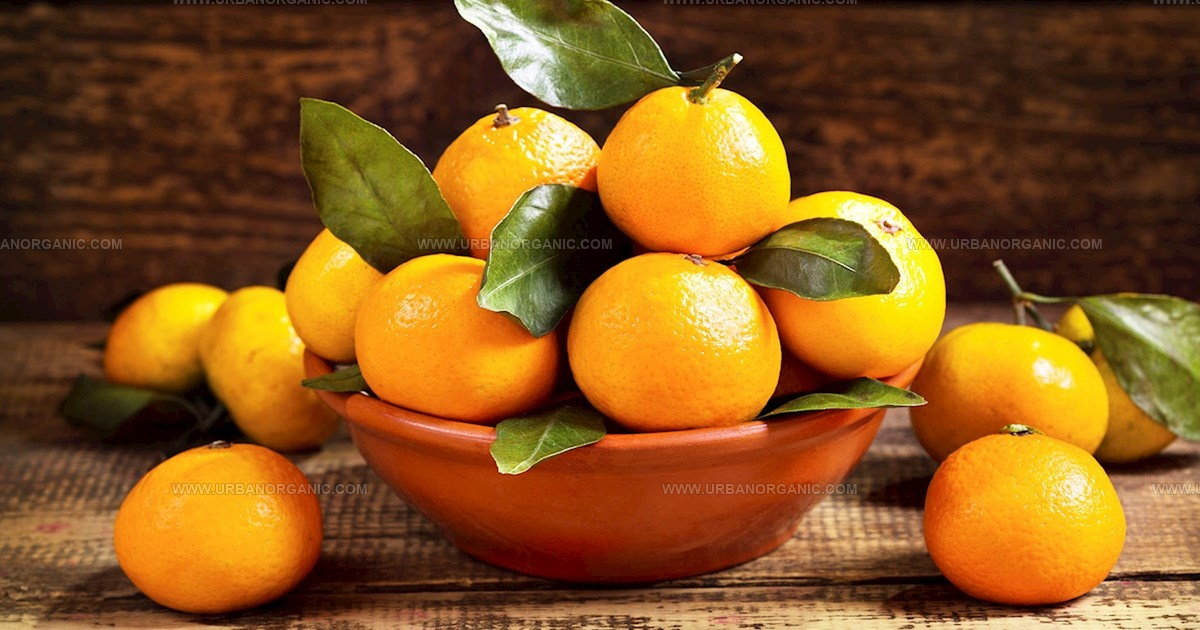
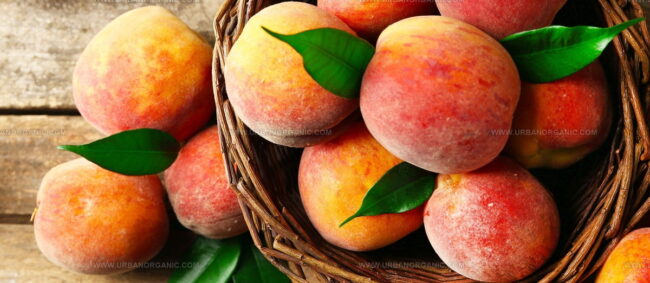
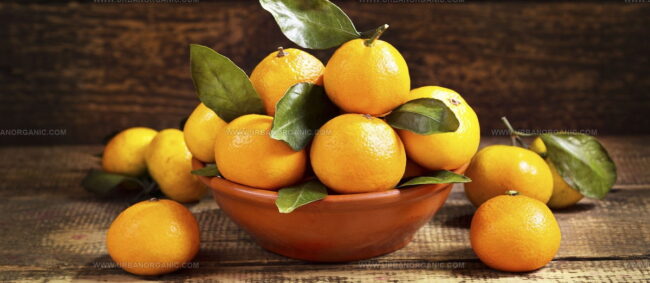
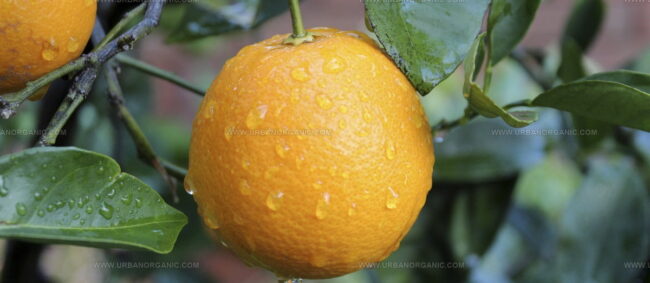
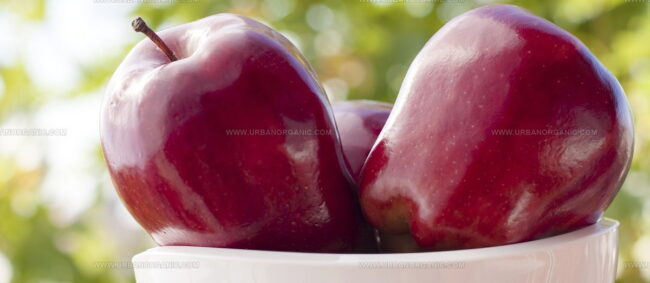
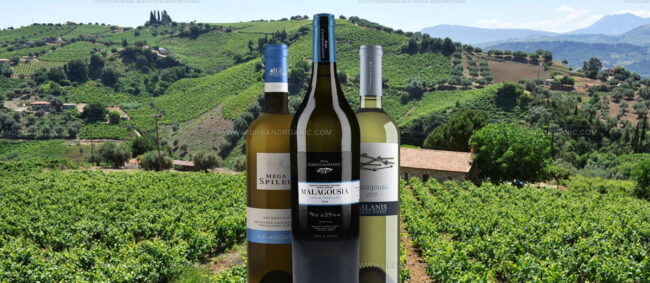
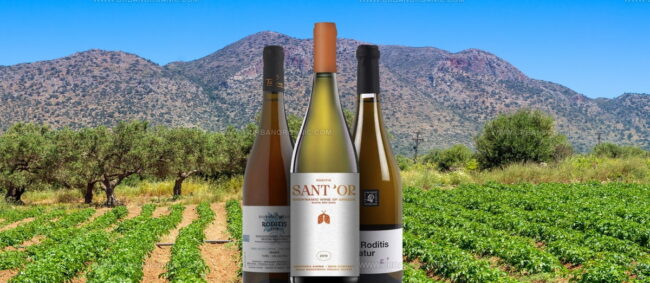
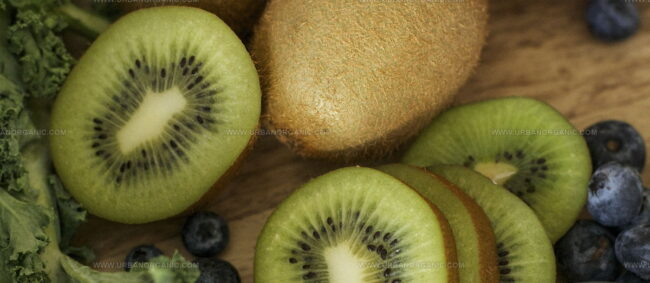
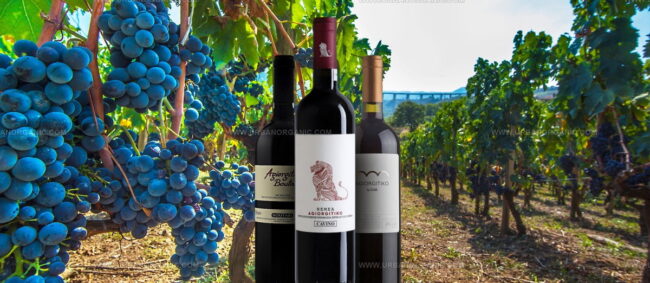
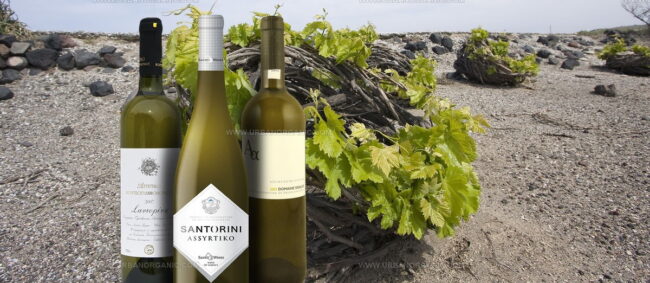
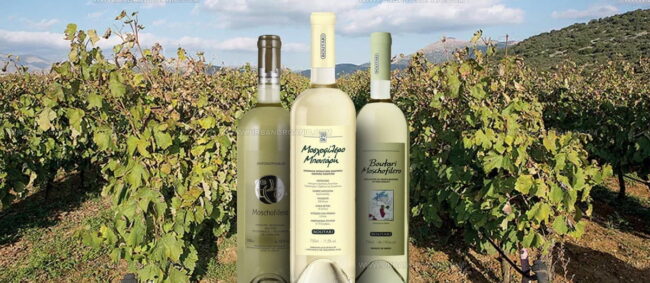
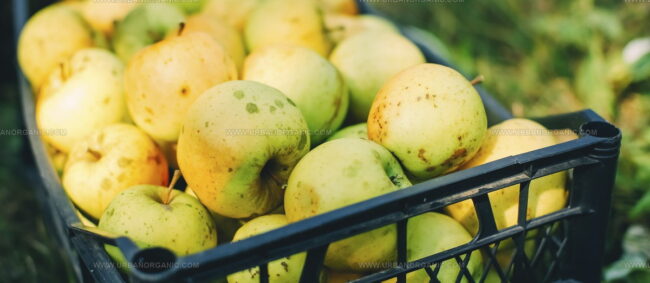
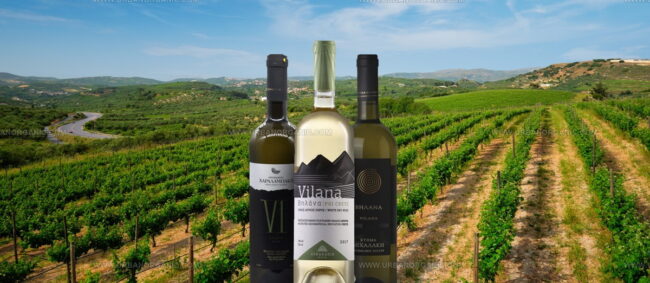
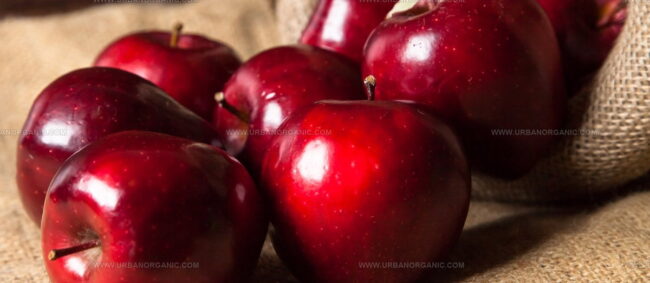
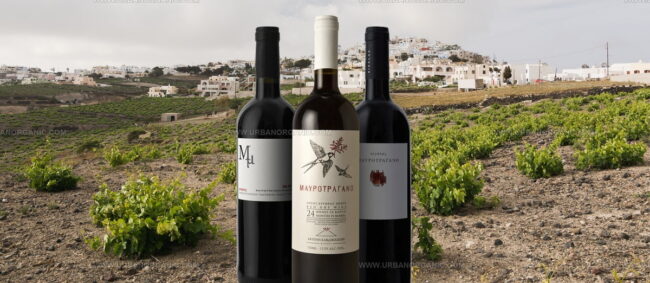
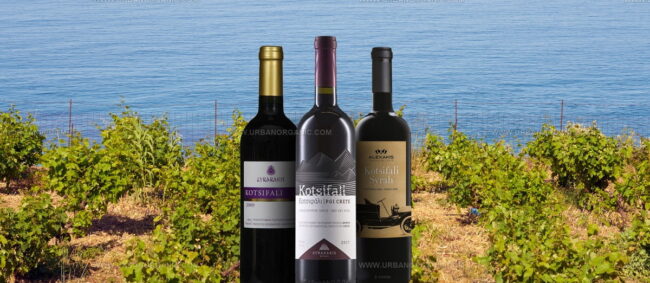
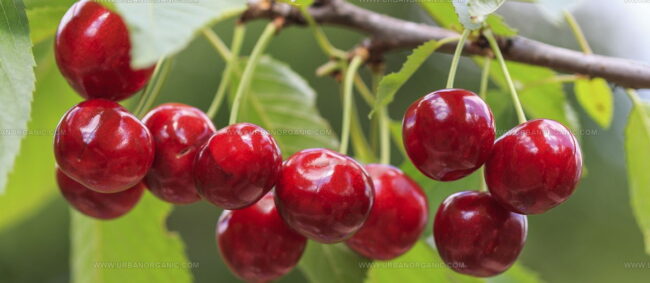
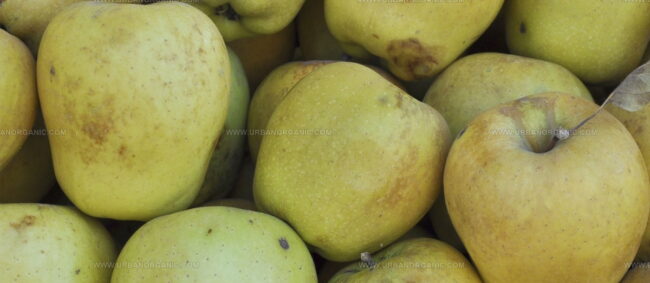
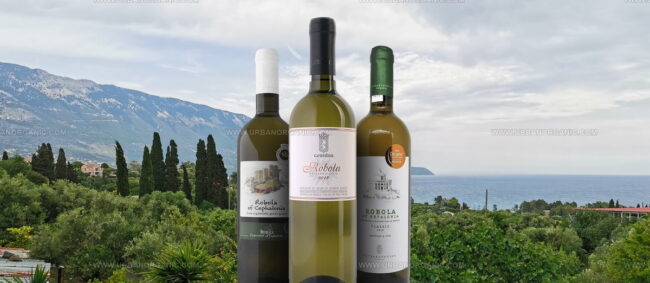
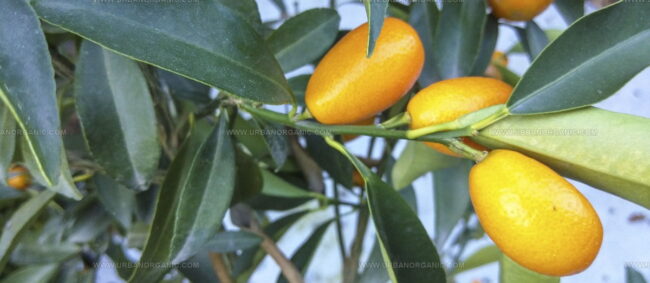
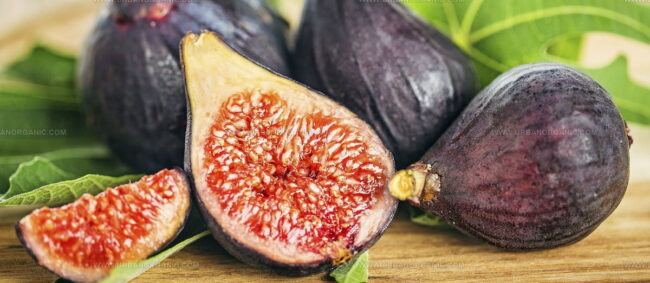
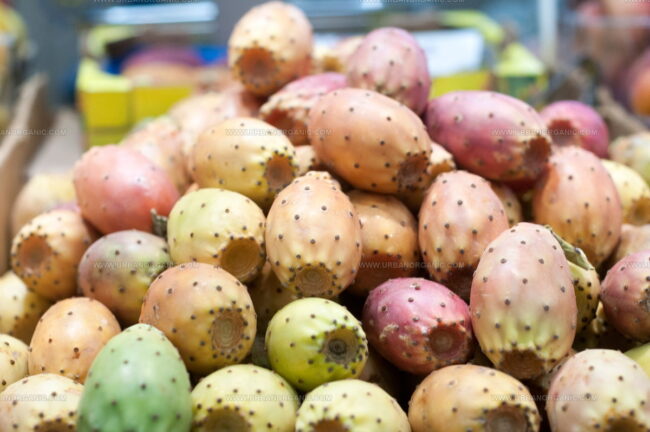
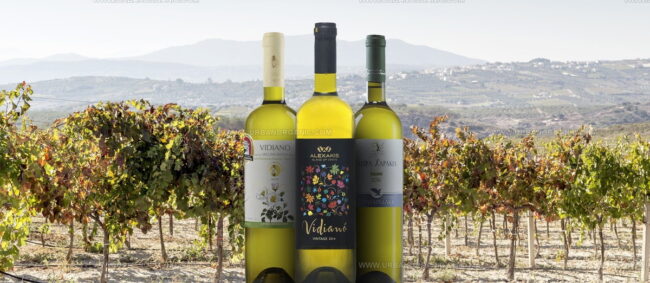
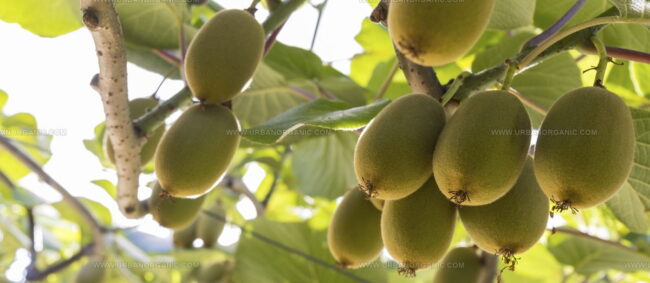
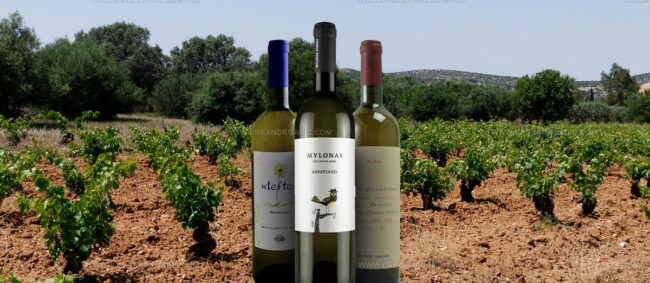
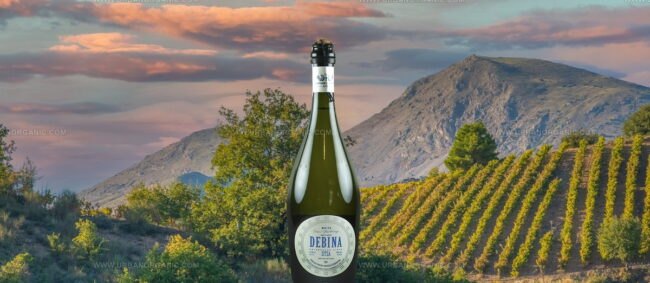
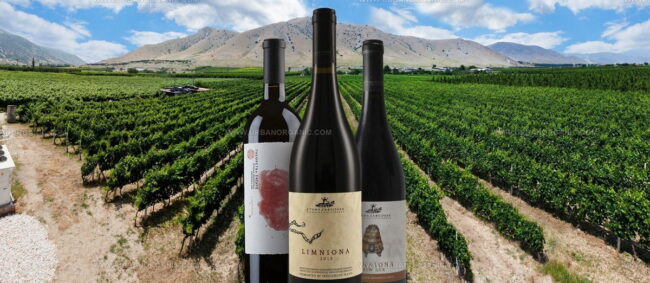
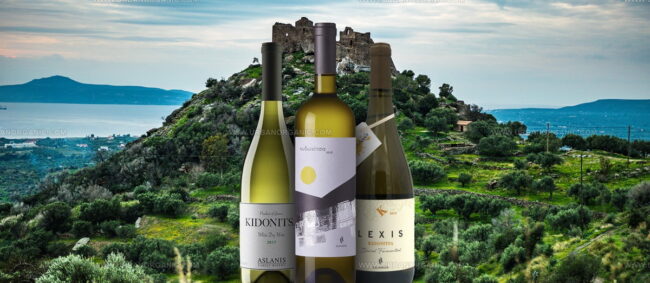
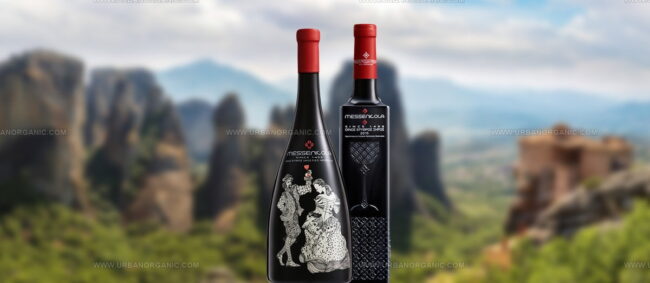


Jessica Martinez
Pastry Chef & Recipe Developer
Expertise
Organic Baking Techniques, Gluten-Free Recipe Development, Southwestern Dessert Specialties, Food Styling and Photography
Education
Santa Fe Community College (SFCC)
Jessica brings the sweet side to Urban Organic with her passion for baking and love for the Southwest. She trained at Santa Fe Community College and has built a career creating beautiful, gluten-free, and organic desserts that feel both nostalgic and new.
She believes baking should be fun, creative, and open to everyone, no matter your diet or skill level. Jessica’s recipes are simple enough to follow, but special enough to remember.